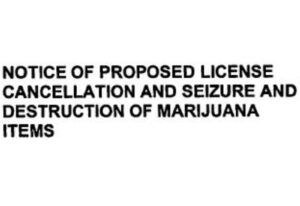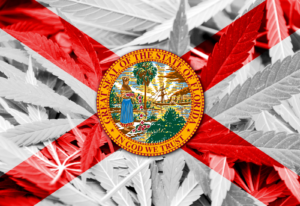On February 21, the Natural Product Association (NPA) filed a citizen petition with the Food and Drug Administration (FDA) on specific cannabidiol (CBD) relief in which it requests enforcement discretion for the premarket approval of CBD products.
In its petition, the NPA is asking the FDA to do one of three things:
- Determine that CBD is not excluded from the definition of dietary supplement under Section 21 U.S.C. § 321(ff)(3) of the Federal Food, Drug, and Cosmetic Act (FDCA)
If you keep a pulse on this issue, you know that for the past three years, the FDA has held the position that CBD cannot be marketed as a dietary ingredient because it was first studied and approved as a drug ingredient in GW Pharmaceuticals’ Epidiolex (Drug Exclusion Rule). According to NPA’s petition, the U.S. Pharmacopeia (USP), which sets standards for medicines, food ingredients and supplements, first documented the use of hemp-derived products in 1850. This means that CBD should be treated as an “old dietary supplement” under the Dietary Supplement Health and Education Act of 1994 (DSHEA), and therefore, not excluded from the definition of a dietary supplement (i.e., the Drug Exclusion Rule does not apply to CBD). - Exercise enforcement discretion review the safety data of a CBD dietary supplement consistent with the premarket safety review of a new dietary ingredient notification.
If the FDA won’t grant NPA’s first requested relief, the organization is asking that the FDA scientifically review its product’s safety data and provide a substantive response. Although NPA’s comprehensive petition is mostly redacted – to protect its confidential data not knowing for a fact whether the FDA will set aside the Drug Exclusion Rule and complete a full scientific review of the data – NPA is confident it can show that the ingredients found in its CBD product meet all applicable safety standards under DSHEA.
- Issue notice-and-comment rulemaking to establish that CBD is lawful under the FDCA.
Since the enactment of the 2018 Farm Bill, which tasked the FDA with the authority to regulate CBD products, the agency has been dragging its feet to fulfill its regulatory responsibilities, claiming, in part, insufficient reliable scientific data needed to assess the safety of CBD-infused products.
While the NPA is the third company to have submitted a petition in the past four years, the FDA has yet to provide substantive responses to prior petitioners, which include Consumer Healthcare Products Association (CHPA) and Council for Responsible Nutrition (CRN). Instead, the federal agency has informed these petitioners through “interim” responses, which you can find here and here, that it needed more time to review the petitions due to the “complexity of issues” raised in them.
Meanwhile, more than thirty states have managed to establish regulatory standards for the human consumption of CBD and other hemp-derived cannabinoids. This wide range of often conflicting state regulations, combined with the lack of any formal federal legal pathway for the sale and marketing of hemp CBD products, has made it nearly impossible for the industry to meet compliance standards, subjecting it to greater risk of enforcement actions.
In filing this citizen petition, NPA is further pursing the industry’s efforts to pressure the FDA with reviewing and submitting a safety determination on CBD products. In addition, this new petition also aims to rectify the regulatory uncertainties that have hindered the industry’s economic opportunities and that have failed consumers in gaining access to safe products.
























